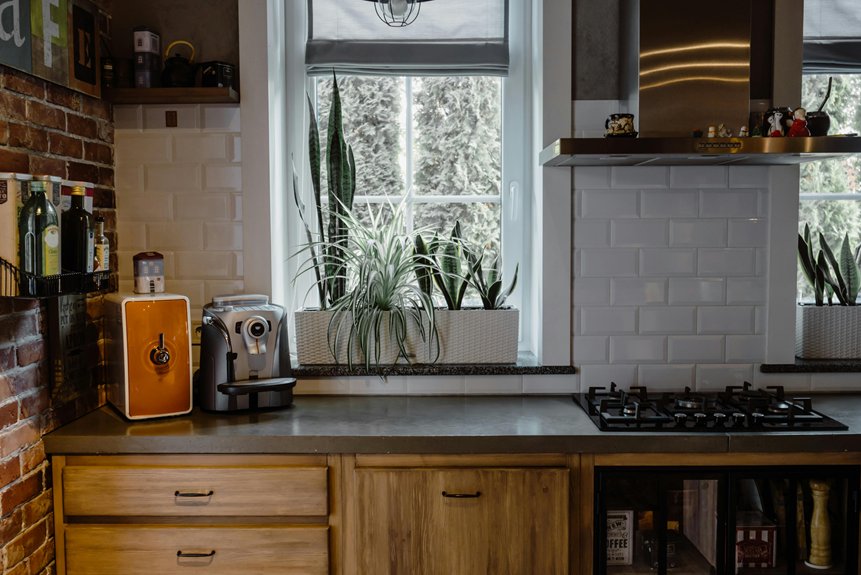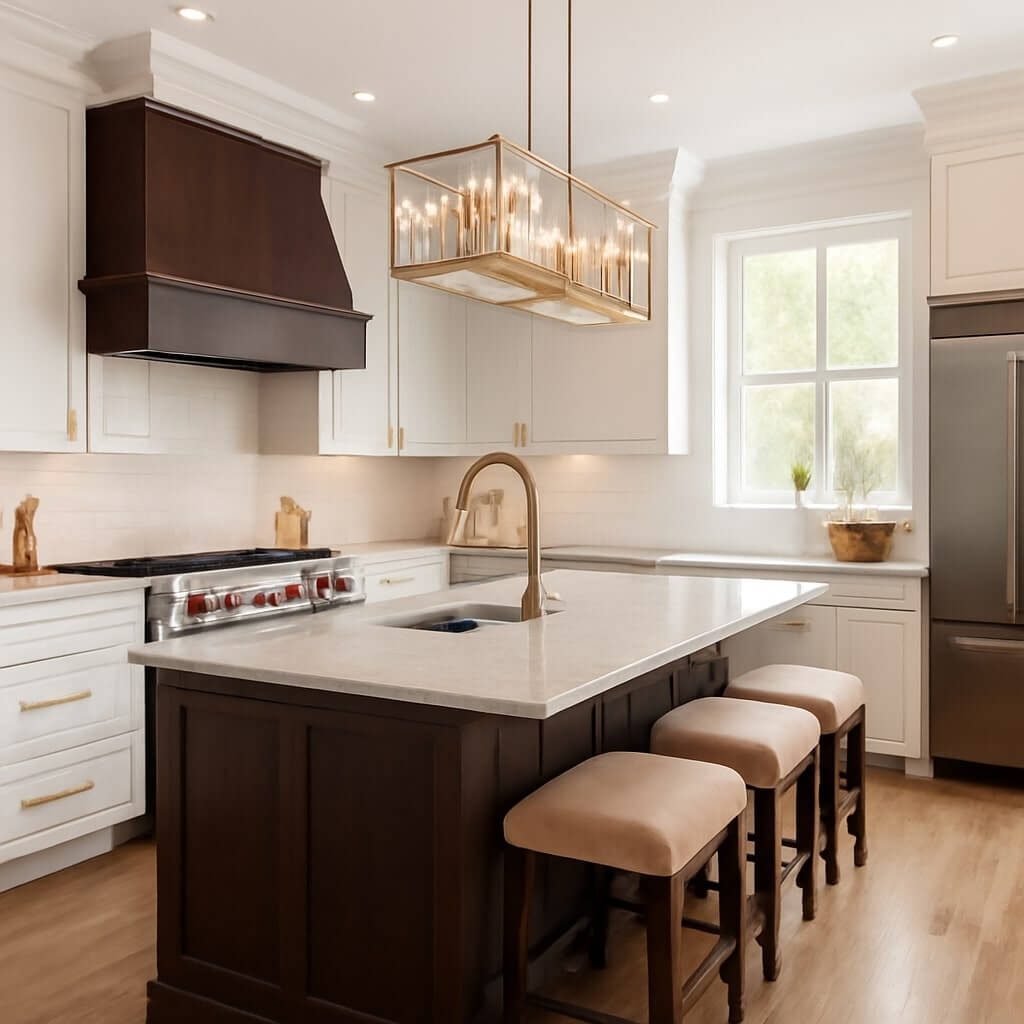When planning your kitchen remodel in Boston, sticking to a budget is essential. You’ll want to account for all costs, including materials and labor, while also preparing for any unexpected expenses. Knowing how to prioritize your needs versus wants can make a significant difference. Plus, there are various cost-saving alternatives that may surprise you. Let’s explore these strategies to guarantee your project stays on track and within budget.
Key Takeaways
- Set a realistic budget that includes materials, labor, permits, and a contingency fund for unexpected costs in Boston.
- Prioritize essential kitchen needs over aesthetic upgrades to ensure functionality before considering luxury items.
- Explore cost-saving alternatives such as DIY projects and recycled materials to reduce overall expenses.
- Monitor expenses closely with budget tracking tools and adjust allocations as the project evolves.
- Plan for the unexpected by preparing for potential structural issues and maintaining flexibility in design plans.
Set a Realistic Budget
Setting a realistic budget for your kitchen remodel in Boston is crucial to avoid overspending and guarantee your project’s success.
Begin by determining your overall budget, factoring in materials, labor, and permits. Use budget tracking tools to monitor expenses closely throughout the project.
It’s important to account for unexpected expenses, like structural issues or changes in design, which can arise during renovations. By allocating a contingency fund, you can handle these surprises without derailing your budget.
Prioritize Your Needs vs. Wants
After establishing a realistic budget, it’s time to distinguish between your kitchen remodel’s needs and wants.
Focus on functional essentials first, like cabinets, countertops, and appliances that guarantee your kitchen meets daily demands. These are non-negotiable for a well-functioning space.
Once you’ve addressed the essentials, you can consider aesthetic upgrades, such as trendy backsplashes or high-end fixtures. While these enhancements can elevate your kitchen’s appeal, they should follow after your primary needs are satisfied.
Explore Cost-Saving Alternatives
While you may have a specific vision for your kitchen remodel, exploring cost-saving alternatives can considerably reduce expenses without sacrificing quality.
Consider DIY projects for tasks like painting cabinets or installing backsplashes; it not only saves money but also adds a personal touch.
Additionally, using recycled materials, such as reclaimed wood for countertops or vintage tiles, can enhance your kitchen’s character while being budget-friendly.
Research local suppliers for cost-effective options or check online marketplaces for gently used items.
These strategies can help you achieve your dream kitchen while keeping costs manageable.
Conclusion
In conclusion, successfully budgeting for your kitchen remodel in Boston hinges on setting a realistic budget, prioritizing essential needs over cosmetic wants, and exploring cost-saving alternatives. By keeping a close eye on expenses and remaining flexible throughout the process, you can create a functional and stylish kitchen without breaking the bank. Embrace these strategies to navigate your remodel efficiently, ensuring that you achieve your desired results while staying within your financial limits.




